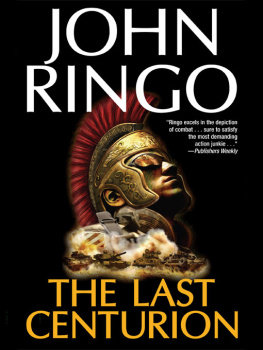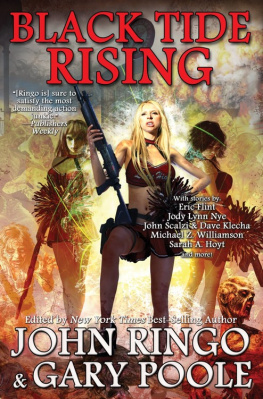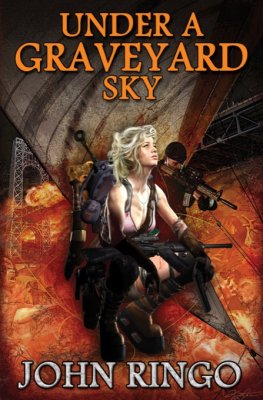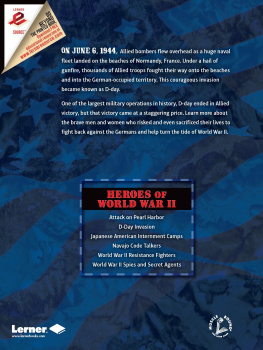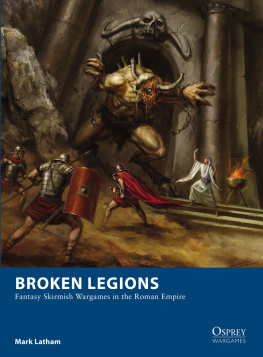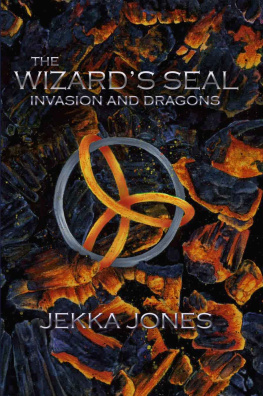Against the Tide
by John Ringo
To Jenny Lindy Ringo
just because
The humpback whale cruised slowly northward through the blue waters of the eastern Atlantis Ocean, listening to the sounds of the sea around him. Sound carries far under water, depending upon its frequency. The humpback did not use sonar, but used the sounds created by other sea creatures large and small, to create a three dimensional map of its surroundings that stretched, with decreasing accuracy, for a bubble hundreds of miles around.
To the southwest were several schools of fish. Birds were diving on them and tuna were working over one while a school of spiny sharks was attacking another. To the northwest, by the lands of ice, a pod of fellow humpbacks, the oceans great communicators, were giving their siren calls, imbedding in them a constant litany of information. A school of squid was in the deeps below the humpback, but he was neither a pelagic hunter like the sei and blues, to go after the schools to the south, nor a deep hunter like the pod of sperm whales to the west, that could make the five hundred meters down to the shoal. No, he was an inshore hunter, who could gorge on herring for a few weeks and then survive for months on the stored fat.
So Bruno told himself. But he was still hungry and the resupply ships werent due for another two weeks.
As he was mentally grumbling to himself, and turning to the east to stay inside his patrol zone, he picked up the frantic squealing of delphino. He listened and then continued his slow and lazy turn until he was pointed in the direction of the distant pod just sculling along a hundred meters below the surface where the interference from the surface chop dropped off. The sound was attenuated by the distance, the high-frequency pinging of the delphinos dropped off rapidly even in cold water, but the humpbacks were not merely the loudest whales in the ocean, they had the best hearing. He waited until the sound began to shift and then surfaced, blasting out the air he had held in his lungs for long minutes and taking in a deep gulp of cold north Atlantis air. He then dropped back to a hundred meters, turned tail up and began to let out a deep series of throbs, like deep, giant drumbeats that resounded through the ocean.
* * *
The mer was lying in mud, his hands interlaced behind his head to keep it up out of the glutinous black mass. Asfaw didnt like sitting in mud, but the alternative was swimming back and forth and that got old quick. He thought to himself, as he had at least a hundred times, that he ought to do something about there being nothing but mud down here. But then he reminded himself that writing memos was a pain in the tail and probably nothing would be done anyway; support of the mer was a pretty low priority around here as their quarters proved. So he continued sitting in the mud, lying in the mud and occasionally playing with the mud through the long watches.
As he was contemplating, again, that hed much rather be back at Blackbeard Base or even out with the scouts, he sat up and cocked his head to the side. He listened for a moment then blanched, his fair skin turning fairer in the dark waters. He quickly swam to the surface and took a breath of air, using it to blast the water in his lungs out through the gill-slits in his ribcage. There wasnt anyone on the floating dock so he swam over to the ladder and climbed up it, hand over hand, until he could see over the side of the dock.
The messenger was sitting on a chair, see, he at least had a chair, his head bowed on his chest. The moon had set but lantern light was more than enough to see that he was slightly drooling and twitching in his sleep.
Robertson! the mer snapped. Wake up!
Whah? the messenger said, sitting up and looking around blearily.
Wake up and get ready to take a message, the mer said.
Yes, sir, the private replied, turning up the oil lamp on his table and fumbling out writing materials and instruments.
When youve delivered the message, go wake up the rest of the messengers; were going to have a busy day.
Yes, sir, the messenger repeated. As the mer dictated, the pen of the messenger trembled and his face, too, turned stark white in the red lamplight.
* * *
As you can see, the young man said, drawing another line on the chalkboard. Subedei used indirect methods in each of his campaigns. And in each of his major battles, although often heavily outnumbered by equally trained forces, he was able to overcome them by destroying their will to fight or their means.
The instructor was, if anything, younger than most of his students, which were a young crowd. He was barely twenty, but eyes were cold and old and his hard face was lined with scars, as was the hand that wielded the chalk. His other hand ended in a complex hook and clamp prosthetic. That was currently hooked in the belt of his undress uniform, a gray kimonolike tunic with an undershirt of unbleached cosilk, a heavy cosilk scarf wrapped around his neck and tucked into the tunic, blue pants with a light blue seam down the trouser-leg and heavy, rough-leather boots. The uniform was somewhat faded with use and washings and the boots had seen heavy use too. But it was clearly comfortable wear to the young man, clothes that he had worn for enough days and years to consider them normal wear. Besides being young, he was also a large man. Very large. The chalk looked like a stubby twig in his hand.
Now, he said, turning to the class that was rapidly trying to repeat his sketches. Can anyone tell me of a strategic use of the indirect approach?
The latter United States battles against the Soviet Union? one of the women at the back of the room said, not looking up from her sketch.
Very good, Ensign, the young man said. And can you give me another example from the same time period?
The young woman looked up in startlement at that and shook her head.
The War on Terrorism? one of the males asked.
Yes, the instructor replied. At no point in either war did the U.S. directly attack those countries which were the most dangerous to them, politically and strategically, through the use of terrorism. Instead, it attacked the countries that aided and supported them in their cultural memes or directly assaulted those memes. By destroying the economy of the Soviet Union in the first case, and by destroying the cultural, not to mention financial, support of terrorism in the second, the U.S. in both cases destroyed an enemy that, arguably, was capable of winning the war. The Soviet Union by a direct nuclear strike, or a ground assault upon Americas allies, and the terrorist-sponsoring states through economic embargo or direct sponsorship of weapons of mass destruction terrorism. But in each case, by strategic ju-jitsu, the American nation attacked at the weakest point, winning vast wars with very small engagements.
Iraq was not the weakest state in the region, the female ensign said. They had more forces than the expeditionary force could field against them for logistic reasons.
Which EF used the indirect approach again, the instructor pointed out. He wiped the preceding sketch from the board and started to draw another. The enemy was in fixed, and very strong, positions, along the probable avenues of approach. Approaches that had been used, notably by the Briton allies of the Americans, in previous wars. By using movement through what the enemy thought was impassable ground, logistically, the Americans and their Briton allies forced the enemy into a battle of maneuver that it could not win against their air superiority. And then by placing forces in the region they drew off the majority of attacks against the civilians in the allied state of Israel as well as their home countries.


